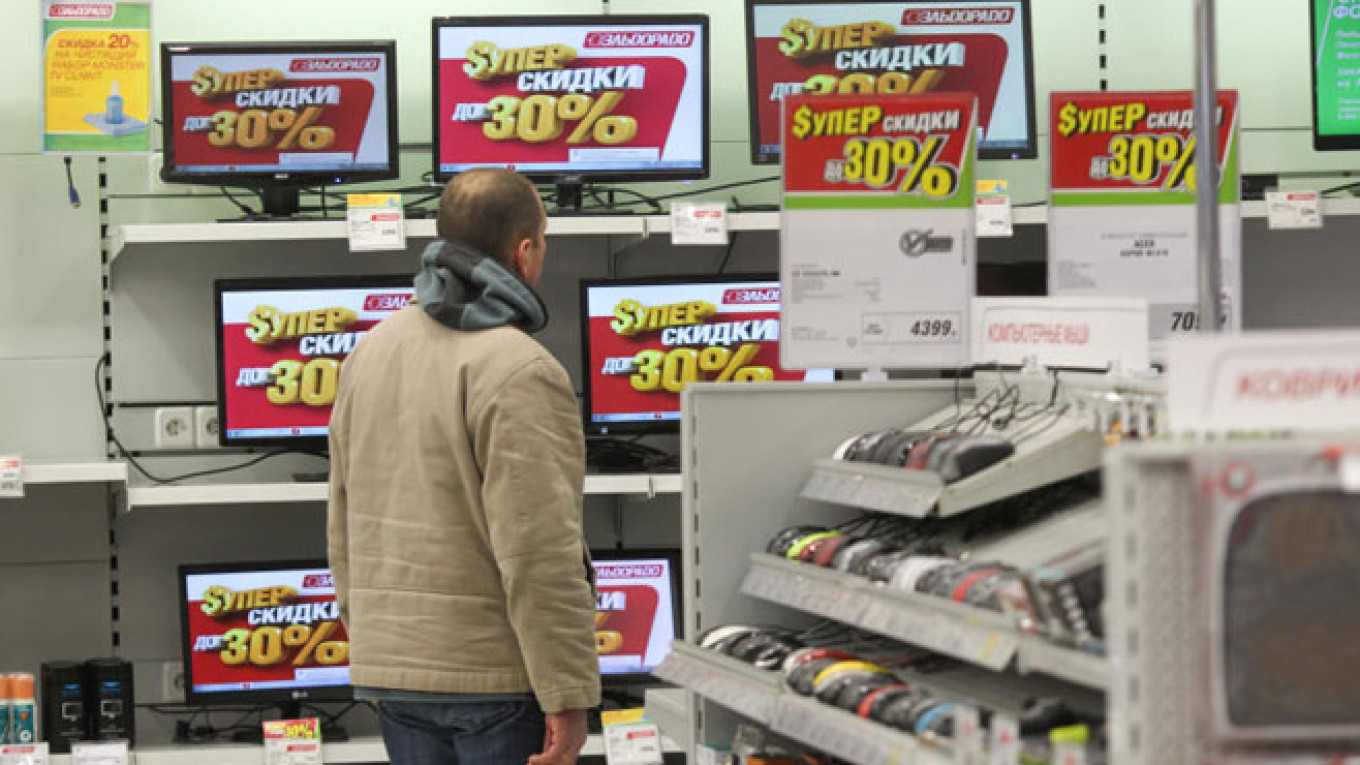Russia's lower house of parliament on Tuesday passed amendments that could return advertising to Russian pay-to-view channels, a move that analysts say points to the waning influence of recently retired state media boss Mikhail Lesin.
If approved by the upper house and President Vladimir Putin, the bill will amend a controversial decision last year that banned advertising on cable and satellite television channels, allowing them to sell ad space as long as 75 percent of their programming is Russian.
The original law was rushed from proposal to law in just a few short weeks last summer over the objections of industry players. Foreign media companies including NBCUniversal and CNN pulled their paid programming from the air in the months before the law came into effect on Jan. 1.
Many in the industry believed at the time that the law was tied to Mikhail Lesin, then the head of state-controlled Gazprom-Media and former long-time chief of the Communications and Press Ministry.
Lesin's resignation from Gazprom-Media in December may have paved the way for the law's revision, said Alexander Vinokurov, owner of independent television channel Dozhd, and Mikhail Makyenko, an expert at the media economics department of Moscow University's journalism faculty.
According to its author, Duma deputy Igor Zotov, the original law was intended to level the playing field between broadcast television, which makes all its money on advertising, and cable television, which receives both subscription and advertising fees.
This logic failed to impress the business community, however. The heads of several Russian channels argued in a letter to the government last year that half of Russia's approximately 300 cable television stations could fail without their advertising revenues.
If passed, the amendments will come as a welcome relief to these stations. Companies' advertising budgets are expected to shrink as Russia's economy sinks into a recession this year caused by systemic problems, Western sanctions and steep falls in the price of oil.
While channels can now use foreign content for only 25 percent of their programming, this is around how much they were already using, Makyenko said.
Russian programming is defined as material made by firms registered in Russia and broadcast either in Russian or one of Russia's other national languages. Programs created by foreign companies but commissioned by Russian ones qualify. Programs with more than half of their expenses covered by foreign investors do not.
As for foreign channels, the most popular ones, such as the Discovery Channel and Animal Planet, are profitable even without ads, raking in upwards of 10 billion rubles ($148 million) on subscriptions alone, according to Makyenko.
Others are searching for ways to re-enter the Russian market. Executives and shareholders from Turner Broadcasting, the owner of CNN, met with Russia's media watchdog Roskomnadzor on Tuesday and agreed on their "mutual interest" in returning CNN to Russia's airwaves, the watchdog said in a statement.
One channel the move won't save is opposition-minded news channel Dozhd, which has yet to make it back on the air after providers refused to broadcast it following a poll on whether or not St. Petersburg should have been surrendered to the Nazis during World War II.
Contact the author at s.skove@imedia.ru
A Message from The Moscow Times:
Dear readers,
We are facing unprecedented challenges. Russia's Prosecutor General's Office has designated The Moscow Times as an "undesirable" organization, criminalizing our work and putting our staff at risk of prosecution. This follows our earlier unjust labeling as a "foreign agent."
These actions are direct attempts to silence independent journalism in Russia. The authorities claim our work "discredits the decisions of the Russian leadership." We see things differently: we strive to provide accurate, unbiased reporting on Russia.
We, the journalists of The Moscow Times, refuse to be silenced. But to continue our work, we need your help.
Your support, no matter how small, makes a world of difference. If you can, please support us monthly starting from just $2. It's quick to set up, and every contribution makes a significant impact.
By supporting The Moscow Times, you're defending open, independent journalism in the face of repression. Thank you for standing with us.
Remind me later.






